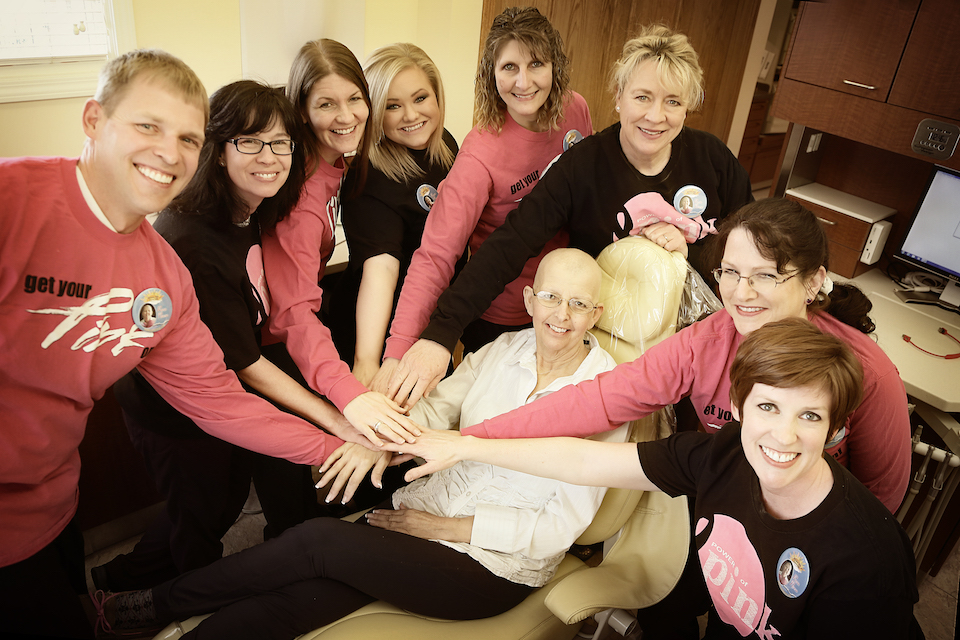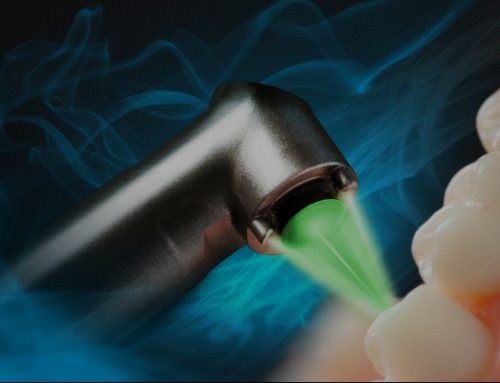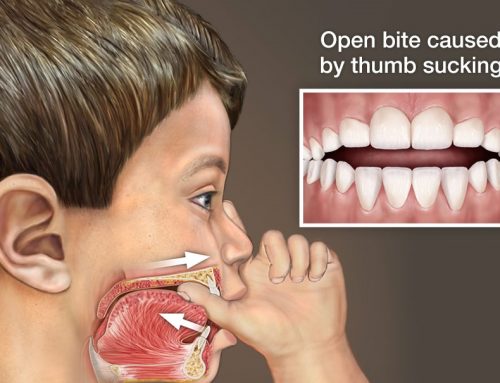Just a few short weeks ago, Rosa came to Hogan Family Dental with the goal to partner with us to educate individuals who may be facing a cancer diagnosis. She wanted cancer patients to know the oral effects of cancer, its treatments, and how to alleviate the associated symptoms. As Rosa demonstrated on a daily basis, cancer patients are in a constant struggle to beat the odds. They fight with a vengeance to preserve and prolong life while accepting treatments that affect their whole bodies. Chemotherapy, radiation, surgery and hematopoietic stem cell transplantation all have oral side effects. Most patients experience difficulty swallowing, diminished ability to taste, difficulty opening, dry mouth, cavities, infections and inflammation of the oral tissues. Drs. Robin and Eric Hogan would like to share a few strategies for managing these complications associated with cancer therapy.
Early Detection
Once an individual has been diagnosed with any form of cancer, it is important to seek out a dentist for a thorough dental exam. Be sure to inform the dentist of the cancer diagnosis and the types of medications prescribed for treatment. Dental treatments including fillings, extractions, root canals, and gum therapy may be recommended to eliminate all oral infection prior to cancer treatment. Depending on the cancer diagnosis, fluoride trays may be custom fabricated for a patient to minimize the chance of forming new cavities. New medications and mouth rinses such as “Magic Mouthwash” may be prescribed to alleviate the discomfort associated with cancer therapies. Careful attention will need to be given to the oral tissues (insides of cheeks, floor of mouth, tongue) to address any additional viral, fungal or bacterial infections that may arise. An educated and prepared patient has the best chance at having an optimal oral health outcome.
During Treatment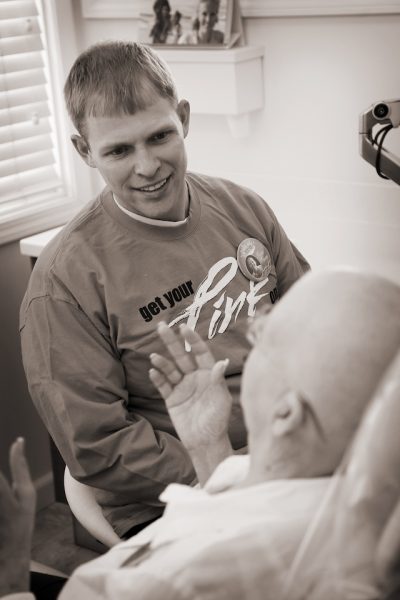
Depending on the cancer treatment option(s) chosen, the cancer patient may experience oral complications that affect the overall quality of life. Careful collaboration with the patient’s primary care physician, pharmacist, and dentist is necessary to address oral symptoms associated with cancer treatments. The dentist may make recommendations such as frequent use of ice chips to reduce inflammation and to combat symptoms associated with dry mouth during chemotherapy. Patients experiencing dry mouth often find moisturizing gels, sprays, and rinses, as well as xylitol-based chewing gum, helpful when combating dry mouth. As always, proper brushing and flossing are very important to keep bacteria in the mouth at minimal levels. When or if brushing becomes difficult, prescription bacterial mouth rinses are available to keep bacterial counts low. Approximately 50-75% of cancer patients who receive chemotherapy and radiation therapy will experience a diminished ability to taste. Additionally, both zinc and vitamin D supplementation may prove helpful in reducing side-effects of cancer treatment. A patient may also wish to consult with a nutritionist.
Many patients suffer from vomiting after chemotherapy treatments. Rinsing the mouth out with a baking soda/water rinse will reduce the acid exposure to the teeth and oral tissues. Ask the primary care physician involved about ways to combat nausea and vomiting; do everything to stay well hydrated during this time. Avoid chewing or sucking on hard candies; choose sugar free candies as an alternative to minimize the risk of new cavities. Ask the doctor and pharmacist about folic acid supplementation which may help with inflammation and sloughing of oral mucosal tissues (tissue on inside of cheeks, floor of mouth).
Post Treatment
Once cancer therapy is complete, the top concern of the dentist is to maintain the patient’s oral comfort. The patient may have experienced complex surgeries near the head and neck region and may need frequent monitoring of any dental prosthesis to ensure proper fit and cleanliness. Regular dental exams are critical for early detection of any additional infections that may arise including dental cavities and gum disease. Remember, the dentist is trained to identify fungal, bacterial and viral infections; he or she can treat these infections and help alleviate the related symptoms.
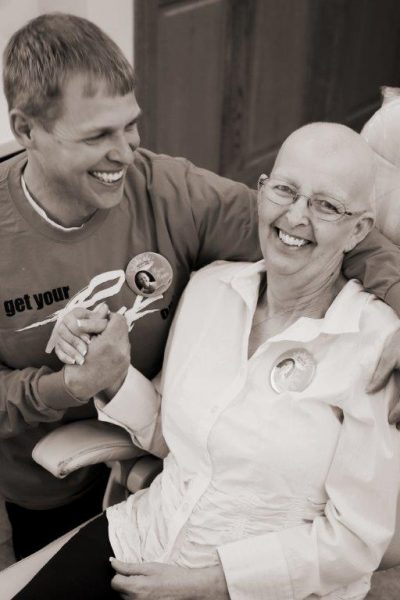 Thank You
Thank You
At Hogan Family Dental, we feel blessed to have had the opportunity to treat Rosa throughout her battle with ovarian cancer. She was a fighter to the very end and remained focused on how she could make a difference for others. We stand in awe of her determination, even in the final days of her life, to embrace this opportunity to improve the oral health of others. We are grateful to Rosa for her role in assisting us in preparing this informational article and will treasure these pictures from her most recent visit.
For More Information
If you or someone you love has received a cancer diagnosis or is receiving any kind of cancer therapy, please consult with your dentist and or primary care physician. You can also contact Hogan Family Dental at (406) 234-2926.

